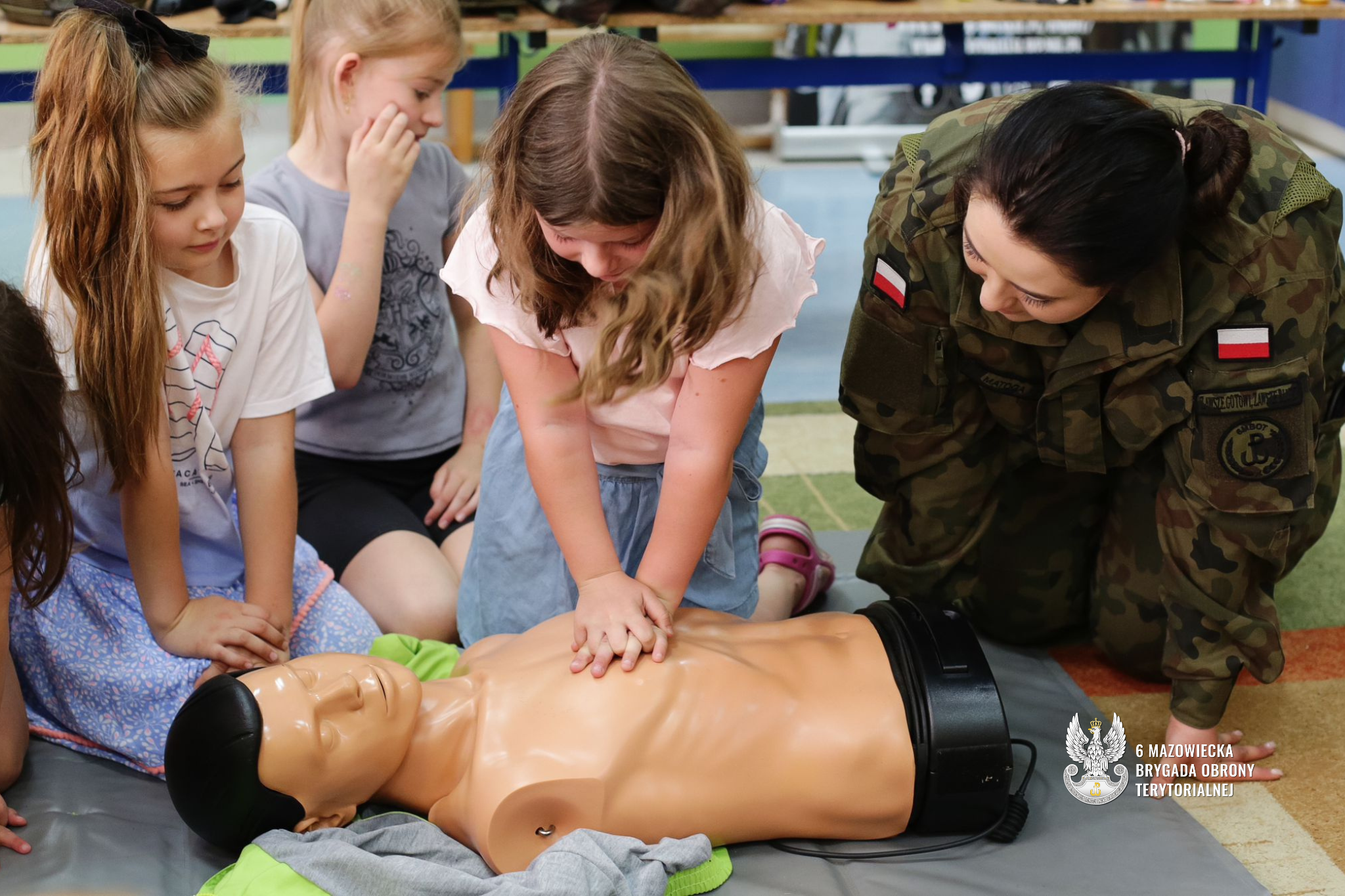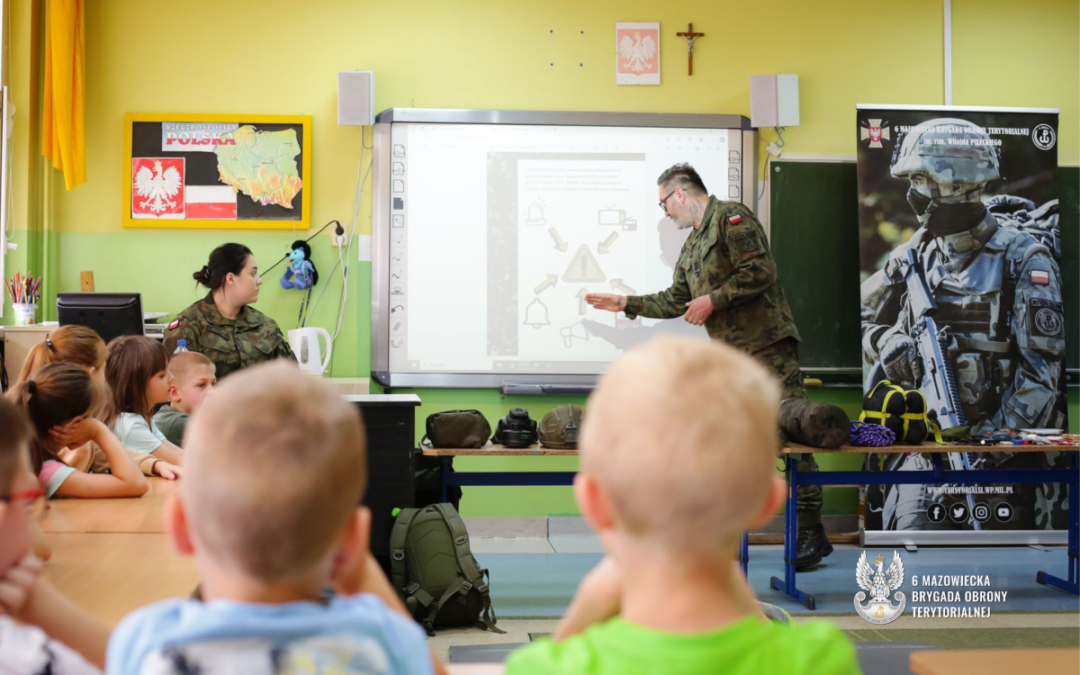Poland’s defence and education ministries have teamed up to launch a programme in which soldiers visit schools to teach children about emergency preparedness.
Just over 3,000 schools have signed up for the scheme, titled “Education with the Military”. It consists of three classes over six weeks during which soldiers teach the basics of emergency medical care, where to find shelters, and how to behave in emergency situations.
The programme, which is currently in a pilot phase, is “a response to contemporary security needs, challenges and threats,” says the defence ministry. Classes began on Monday this week and will run until 20 June.
Edukacja z wojskiem to 6-tygodniowy program edukacyjno-obronny. Program jest realizowany w całej Polsce – każda gmina może zgłosić swoją szkołę. 6 maja ruszają pierwsze szkolenia. W pilotażu udział weźmie około 3500 szkół.https://t.co/FPeQDpSDMe#EdukacjaZWojskiem 🇵🇱 pic.twitter.com/1oYGbNsInn
— WCR Warszawa-Mokotów (@WCRWwaMok) May 5, 2024
“Security is not only a well-equipped army, but also the strength and resilience of society,” said defence minister Władysław Kosiniak-Kamysz. “From nurseries to senior citizens, everyone must be ready for different challenges.”
“Safety and emergency preparedness needs to be something we are familiar with,” continued the minister, adding that part of the role of a school should be to give children the skills needed to cope with emergency situations.
Education minister Barbara Nowacka said that the programme aims not only to “increase resilience among young people” but also “to develop patriotic attitudes and to learn competences that can be useful at any point in life”.
“Patriotism is the readiness to act for the homeland…to serve the country and to serve one’s neighbour,” said Nowacka. “In the messy world we live in, this resilience, this knowledge and this awareness that each person will know how to cope and help others is extremely important.”
Wczoraj Zespół Szkół w #Górzno odwiedzili żołnierze 4 Brodnickiego Pułku Chemicznego, którzy przeprowadzili zajęcia w ramach programu #EdukacjazWojskiem. Żołnierze #WojskoPolskie 🇵🇱 przeprowadzili próbną ewakuację oraz uczyli najmłodszych udzielania pierwszej pomocy. Program… pic.twitter.com/glf5zsLL8Z
— Ministerstwo Obrony Narodowej 🇵🇱 (@MON_GOV_PL) May 8, 2024
Beata Skruszewicz, the principal of a primary school in Toruń in which the classes have already begun, told public broadcaster TVP that “they teach practical skills that children cannot read in textbooks”.
“It’s more interesting to meet someone who will talk about it and present it,” said Skruszewicz. “And you can also try and practice yourself.”
A soldier from the 6th Masovian Territorial Defence Brigade teaching classes at a primary school in the town of Pionki told local news website Pionki24 that the children “also learn a bit about barracks life [and] I hope that, thanks to this, some of them will join the ranks in the future”.

In recent years, especially after Russia’s invasion of Ukraine, Poland has sought to bolster its defences and emergency preparedness. The country last year spent almost 4% of GDP on defence, which was the highest relative figure among NATO countries.
In 2022, the government ordered a survey of available shelters and last year launched an online service that helps people find their nearest place of refuge in an emergency.
Earlier this year, Warsaw announced a 117 million zloty (€27 million) programme to improve the capital’s emergency preparedness, including a better system of shelters.

Notes from Poland is run by a small editorial team and published by an independent, non-profit foundation that is funded through donations from our readers. We cannot do what we do without your support.
Main image credit: Ministerstwo Obrony Narodowej / twitter.com

Alicja Ptak is deputy editor-in-chief of Notes from Poland and a multimedia journalist. She has written for Clean Energy Wire and The Times, and she hosts her own podcast, The Warsaw Wire, on Poland’s economy and energy sector. She previously worked for Reuters.



















